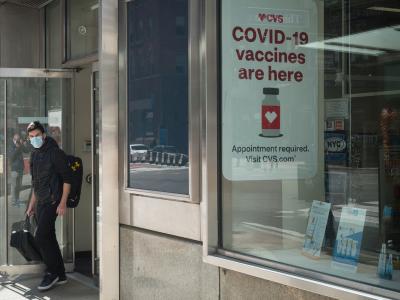G7 governments urged to do more to boost antibiotic development
A coalition of organizations from academia, healthcare, and the pharmaceutical industry sent a letter today to G7 governments calling for greater engagement in tackling antimicrobial resistance (AMR) and boosting the pipeline for new antibiotics.
The joint statement, issued ahead of World Antimicrobial Awareness Week, calls on G7 governments to explore a range of options, in collaboration with the private sector, to strengthen the antibiotic research and development pipeline from beginning to end. That includes support for basic research, funding to help companies transition from early-stage trials to late-stage clinical development, and development of financial pull incentives to ensure investment into innovative new antibiotics is rewarded.
The signatories, including the AMR Action Fund and the Global Antibiotic Research & Development Partnership, also call on G7 governments to develop new reimbursement models for novel antibiotics for drug-resistant infections to help ensure that patients in all countries have fast access to them, and to capitalize on the potential of vaccines to protect against infections and reduce the need for antibiotics.
"Only if we set these recommendations into immediate action, we will be able to build an innovative and sustainable ecosystem to effectively fight AMR," the groups said in the statement.
Nov 17 joint statement
UK report shows drop in antibiotic-resistant bloodstream infections
A new surveillance report released today by UK health officials shows that the number of antibiotic-resistant bloodstream infections (BSIs) fell in England from 2019 to 2020, a decline that likely reflects the impact of the COVID-19 pandemic and masks the rising burden of resistance.
Data from the eighth annual English Surveillance Programme for Antimicrobial Use and Resistance (ESPAUR) report indicates that the number of antibiotic-resistant BSIs fell from 65,583 in 2019 to 55,384 in 2020, a 15% decline. But that's mainly because the overall incidence of BSIs caused by key bacterial pathogens declined in 2020, led by a 59% decline in Streptococcus pneumoniae BSIs and a 14% reduction in Escherichia coli BSIs. The report suggests that decline was due in part to reduced contact between individuals, improved hand hygiene, reduced antibiotic prescribing, and fewer interactions with healthcare during the pandemic.
But the report also shows that among the bacteria that commonly causes BSIs (including E coli and Klebsiella pneumoniae), resistance to several key antibiotics rose from 2016 to 2019 before falling in 2020. And the number of BSIs caused by resistant pathogens rose annually over that period. Even with the 2020 declines, roughly 1 in 5 people with a BSI in 2020 had an antibiotic-resistant infection.
The UK's Health Security Agency says these findings suggest drug-resistant infections will likely climb once the pandemic is over.
"Antimicrobial resistance has been described as a hidden pandemic and it's important that we do not come out of COVID-19 and enter into another crisis," UKHSA chief medical advisor Susan Hopkins, MB BCh, said in a press release.
The ESPAUR report highlighted continuing declines in antibiotic prescribing in English healthcare. From 2016 to 2019, total antibiotic consumption fell by 6.6%, with an additional 10.9% reduction from 2019 to 2020. The greatest decline was observed within the General Practice (GP) setting, where prescribing fell by 10.4% from 2016 to 2019, with a further 9.4% reduction from 2019 to 2020.
Antibiotic use in hospitals, however, increased by 1.9% from 2016 to 2019, with an additional 4.8% increase from 2019 to 2020.
Nov 17 ESPAUR report
Nov 17 UKHSA press release













